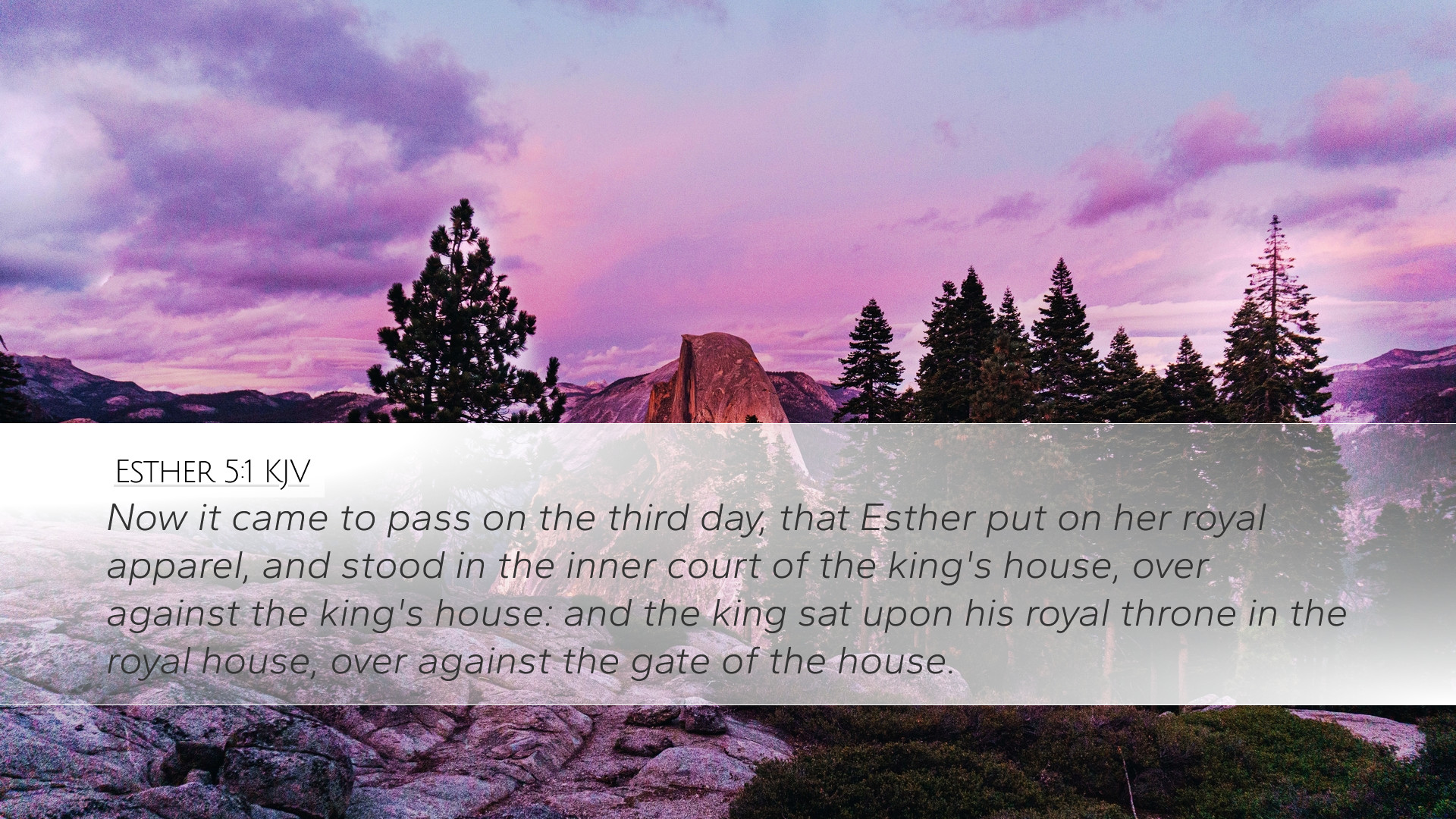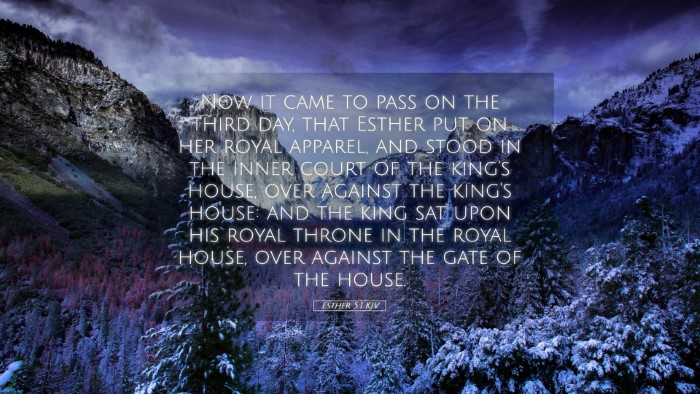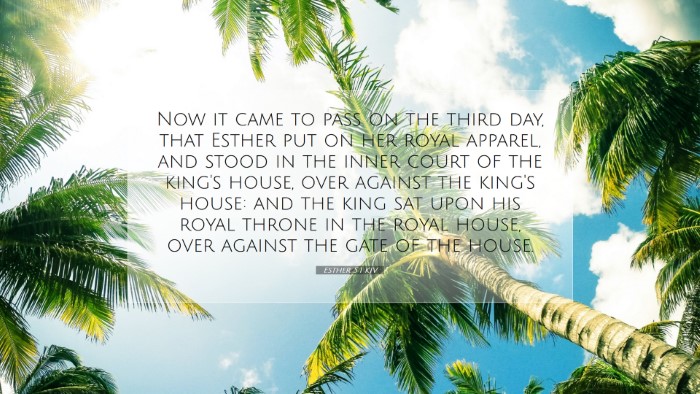Old Testament
Genesis Exodus Leviticus Numbers Deuteronomy Joshua Judges Ruth 1 Samuel 2 Samuel 1 Kings 2 Kings 1 Chronicles 2 Chronicles Ezra Nehemiah Esther Job Psalms Proverbs Ecclesiastes Song of Solomon Isaiah Jeremiah Lamentations Ezekiel Daniel Hosea Joel Amos Obadiah Jonah Micah Nahum Habakkuk Zephaniah Haggai Zechariah MalachiEsther 5:1
Esther 5:1 KJV
Now it came to pass on the third day, that Esther put on her royal apparel, and stood in the inner court of the king's house, over against the king's house: and the king sat upon his royal throne in the royal house, over against the gate of the house.
Esther 5:1 Bible Commentary
Commentary on Esther 5:1
Verse Text: "Now it happened on the third day that Esther put on her royal robes and stood in the inner court of the king’s palace, across from the king’s house, while the king sat on his royal throne in the royal house, facing the entrance of the house."
Introduction
The narrative of Esther presents profound theological insights and practical lessons for leaders, congregations, and individuals. Esther 5:1 is a pivotal moment in the unfolding drama of the Jewish people's survival in the Persian Empire. This verse showcases Esther's courage and determination to intercede for her people.
Historical Context
Historical Background: Esther’s ascent to the role of queen occurred in the aftermath of a royal decree that endangered the lives of the Jewish people. The backdrop of political intrigue and personal sacrifice sets the stage for the significant events that follow her presentation before King Xerxes.
Verse Breakdown
Esther 5:1 shows the following key elements:
- Timing: "on the third day" indicates a period of preparation, likely reflecting Esther’s time of fasting and prayer.
- Royal Apparel: "put on her royal robes" signifies her readiness to approach the king, embodying her authority while simultaneously emphasizing her vulnerability in this critical moment.
- Location: "stood in the inner court" conveys Esther’s boldness, facing potential death to save her people.
- King's Position: The description of the king "sitting on his royal throne" encapsulates his authority and the high stakes of Esther's approach.
Theological Implications
This verse is rich in theological implications, exploring themes of providence, courage, and divine intervention:
- Divine Providence: Esther's ascension to the throne and her subsequent actions illustrate God's unseen guidance in the affairs of men, where Esther may have been positioned strategically by God for such a time as this (Esther 4:14).
- Courage in Faith: Esther demonstrates remarkable faith and conviction. Her willingness to risk her life for her people serves as a model for believers in taking a stand for righteousness.
- Intercession: The act of standing before the king symbolizes the role of prayer and supplication in the believer's life, underscoring the importance of interceding for others.
Commentary Insights
Matthew Henry: Henry emphasizes the gravity of Esther's position, noting her act of standing before the king was not merely ceremonial but a bold declaration of her intent to intercede. He highlights the courage of Esther who, despite her fears, chose to move forward with faith.
Albert Barnes: Barnes focuses on the significance of the "third day," portraying it as a time of intense preparation. The spiritual aspect of Esther’s actions cannot be overlooked; it indicates deep reliance on God as she seeks favor before the king.
Adam Clarke: Clarke goes deeper into the cultural context, discussing the risks associated with approaching the king unsummoned. He notes that her royal robes display her identity and status while simultaneously serving to garner the king's attention and favor.
Practical Applications
Esther 5:1 can provide valuable lessons for contemporary readers:
- Preparation for Leadership: In any leadership role, preparation through prayer and understanding of God’s will is crucial.
- Boldness in Calling: Just as Esther approached the king with boldness, believers are called to confront difficult situations with faith and assurance.
- God's Sovereignty: Trusting in God's overarching plan allows believers to act with confidence, knowing that He orchestrates events for His purposes.
Conclusion
Esther 5:1 is more than a mere historical account; it provides a rich tapestry of implications for faith, courage, and divine purpose. As pastors, students, theologians, and Bible scholars explore this verse, they are invited to ponder the deeper meanings behind Esther’s actions and the providential hand of God working in the lives of His people.


